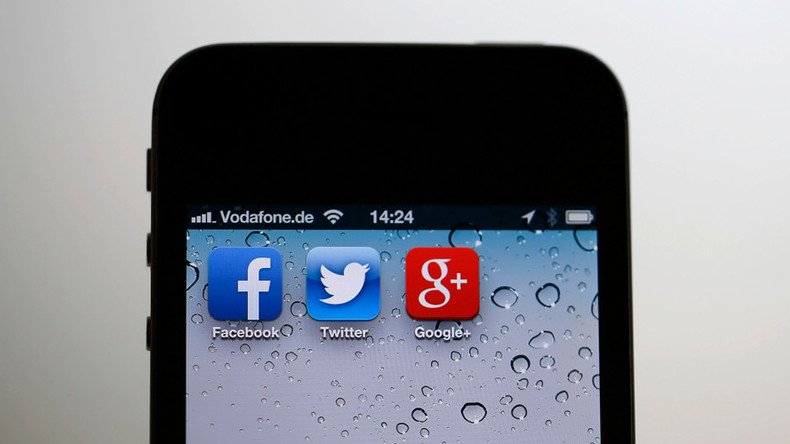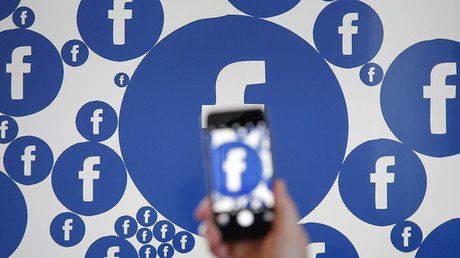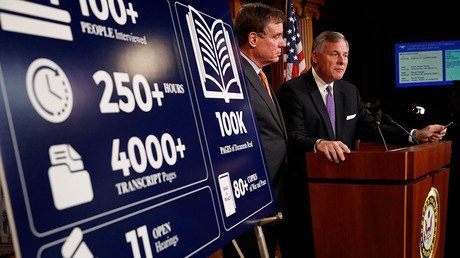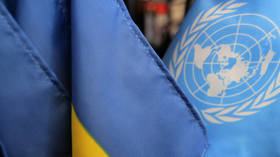Facebook, Google, Twitter staff aided both US presidential candidates – study

Employees of Facebook, Google and Twitter played a large role in developing candidates' messages and targeting voters in the US presidential election, according to a new study, which also said such support was especially vital for the Trump campaign.
The research, conducted by communications professors at the University of North Carolina at Chapel Hill and the University of Utah, says that tech giants’ employees went beyond their typical roles of "promoting services and facilitating digital advertising buys.
In fact, their efforts included "actively shaping campaign communications through their close collaboration with political staffers," the paper states.
Their tasks specifically included working more as political operatives by suggesting methods to target hard-to-reach voters online and helping to create responses to likely attack methods during debates. They also analyzed candidates' calendars to recommended ad pushes around upcoming speeches.
Researchers noted that Facebook coordinated so-called "dark spot" posts, which would only appear to certain users, and identified the kinds of photos that would perform best on Instagram. Twitter helped candidates analyze the performances of their fundraising tweets and recommended additional moves the campaigns should make. Google, for its part, monitored candidates' travel schedules to recommend geographically targeted advertisements.
The discovery is significant, as it reveals roles which have typically only been entrusted to candidates' own staff members or paid consultants.
"The extent to which they were helping candidates online was a surprise to us," co-author Daniel Kreiss from UNC Chapel Hill told Politico. He referred to the assistance as "a form of subsidy from technology firms to political candidates."
Although such services were offered to all political candidates free of charge, it was found to be most beneficial for Donald Trump's campaign, which did not heavily invest in its own digital operations during the primaries and made significant use of "embedded" Facebook, Google, and Twitter employees in the general election, according to the study.
Once Trump became the likely Republican nominee, employees from the three companies set up an office in a strip mall office rented by the Trump campaign in San Antonio, Texas, the researchers wrote, citing former Twitter communications official Nu Wexler. San Antonio is the home of Trump’s digital campaign chief, Brad Parscale.
"One, they found that they were getting solid advice, and two, it's cheaper. It's free labor," Wexler is cited as saying in the study. Tech company employees would work in the San Antonio office for days at a time, and ultimately helped Trump close his staffing gap with Hillary Clinton, according to digital experts interviewed by the researchers.
Clinton opted not to "embed" the tech companies' employees in her campaign, the researchers noted, instead choosing to develop her own digital framework and call in the tech firms to help execute certain elements of her strategy.
“Clinton viewed us as vendors rather than consultants," one unnamed tech company worker is quoted as saying. However, an anonymous source close to the Clinton campaign argued that her team was in regular contact with the tech companies. The source added that there would have simply been no advantage to having such professionals sitting at desks at Clinton's headquarters in Brooklyn, New York.
When the firms were asked specifically about the work they did for Trump, they stressed that their services were available to all candidates, regardless of their party affiliation.
Meanwhile, Kreiss says the study's findings warrant more research into the relationship between Silicon Valley and political campaigns.
"It raises the larger question of what should be the transparency around this, given that it's taking place in the context of a democratic election," he said.
The study, which is due to be published in the journal Political Communication, interviewed more than a dozen people, including tech company employees who worked inside several 2016 presidential campaigns and with campaign officials.
READ MORE: Twitter bans all RT advertising, citing ‘election interference’
The research comes as Facebook, Google, and Twitter prepare to testify at next week’s congressional hearings on Russia's alleged use of the platforms to interfere with the 2016 election. Russia has repeatedly denied any interference in the election, pointing to a lack of evidence to support those claims. Trump has also referred to the accusations as a "hoax" and a "witch hunt."















